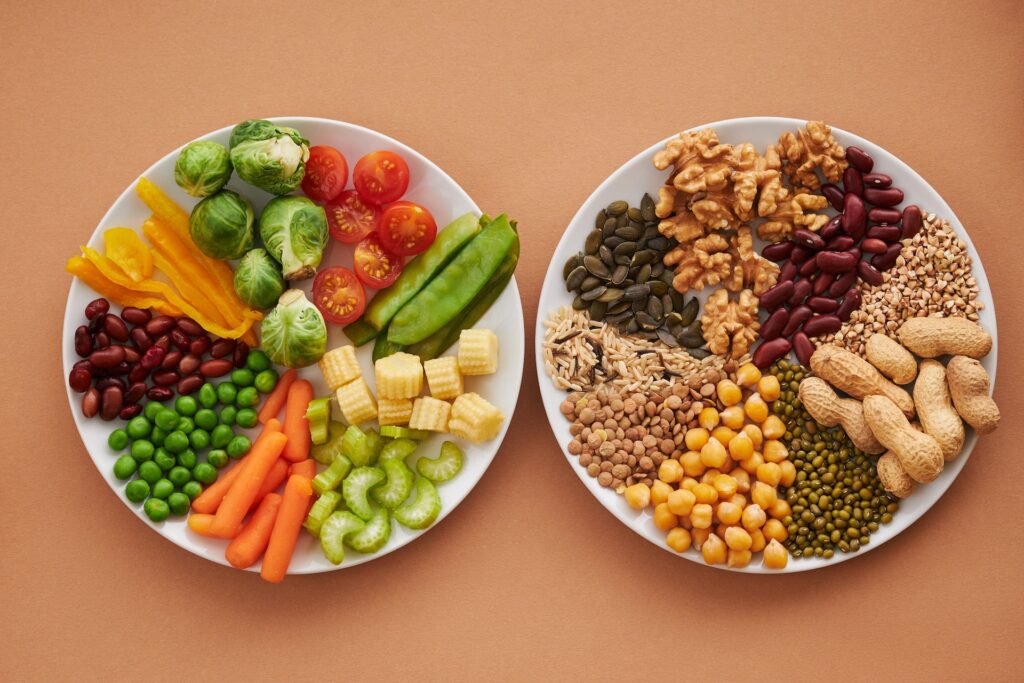Taking control of your lifestyle can help you live longer and healthier. A Guide to a Healthy Lifestyle provides frank discussions of critical issues that impact health and introduces students to the basics of making healthy behavioral choices.
Eat a variety of fruits, vegetables, legumes, nuts, seeds, and whole grains. Avoid unhealthy fats and drink plenty of water.
1. Eat a Balanced Diet
Eating a balanced diet is the foundation of a healthy lifestyle. It can look different for everyone but should include a variety of foods from all groups. This includes fruits, vegetables, whole grains, and dairy. Consuming nutrient-rich foods and avoiding empty calories can prevent a wide range of health issues including obesity, heart disease, diabetes, and high blood pressure.
Make a habit of filling half your plate with nonstarchy veggies like broccoli, spinach, and squash as well as colorful fruits. Also include a quarter plate of whole grains, such as brown rice, whole grain bread and pasta, and quinoa. Lastly, choose protein sources such as fish, lean meats, nuts, and seeds. Limit sugary drinks and instead drink water or lower-fat milk.

2. Exercise Regularly
Healthy lifestyle behaviors can help prevent a variety of diseases and conditions, including heart disease, high blood pressure, and diabetes. These include regular exercise, a balanced diet, adequate sleep and relaxation, and abstaining from smoking and nonessential medications.
The Centers for Disease Control recommend that adults get 150 minutes of moderate-intensity exercise or 30 minutes of vigorous activity each week, along with two days of muscle-strengthening exercises. Exercise can include anything from brisk walking to running, swimming or water aerobics, and even playing sports like basketball or soccer.
The most important thing is that you find a workout routine that fits your lifestyle and feels fun to you. Then make it a priority and schedule your workouts just like you would any other important appointment.
3. Avoid Tobacco
Smoking tobacco or using smokeless tobacco causes serious diseases including cancer, lung disease, and heart disease. Nicotine, which is in cigarettes and chewing tobacco products, is a stimulant and depressant, which leads to depression and fatigue. It also reduces the amount of oxygen in the blood, which can cause breathlessness.
Many smokers use tobacco to deal with difficult feelings. Learn healthier ways to handle stress, anxiety, and depression such as exercise, meditation, massage, or deep breathing exercises.
Avoid places, people, and situations that make you think of smoking or using tobacco. Hang out with nonsmokers and avoid activities you associate with smoking such as drinking alcohol, exercising, or sipping coffee. Have a healthy snack like carrot or celery sticks, sugar-free gum or hard candy handy to keep your mouth busy when cravings strike.

4. Sleep Well
People who get enough sleep have a lower risk of heart disease, stroke, and diabetes than those who don’t. It also helps prevent weight gain, moodiness, and sickness.
Getting a good night’s sleep may seem difficult at times, but it’s important to prioritize sleeping well like you would exercise and eat healthy. Keep in mind that your individual needs for sleep vary but aim for 7-8 hours per night.
Establishing a regular schedule for sleep and avoiding screen time, especially before bed, can help you fall asleep and stay asleep better. It’s important to avoid eating large meals within a couple of hours of bedtime and to limit caffeine, alcohol, and nicotine, as these are nervous system stimulants that can interfere with sleep. Keeping your bedroom dark and quiet can also help.
5. Drink Water
Getting enough water is important for many reasons, including regular bowel function, muscle performance, skin health, and immune system function. It also helps prevent dehydration, which can cause headaches, fatigue, dry skin, and weakened immunity.
Thirst is usually the best indicator that you need to drink water. However, this sensation can be delayed in some people, so it is best to drink water regularly throughout the day, even when you don’t feel thirsty.
Avoid flavored bottled waters, which can be high in sugar and calories. Try adding berries, cucumbers, apples, and cinnamon or mint to your water bottle to add flavor without adding calories. Also, drink a glass of water when you wake up to help activate your digestive system. Drink water with meals to prevent bloating, and drink water with your snacks as well.









































Discussion about this post